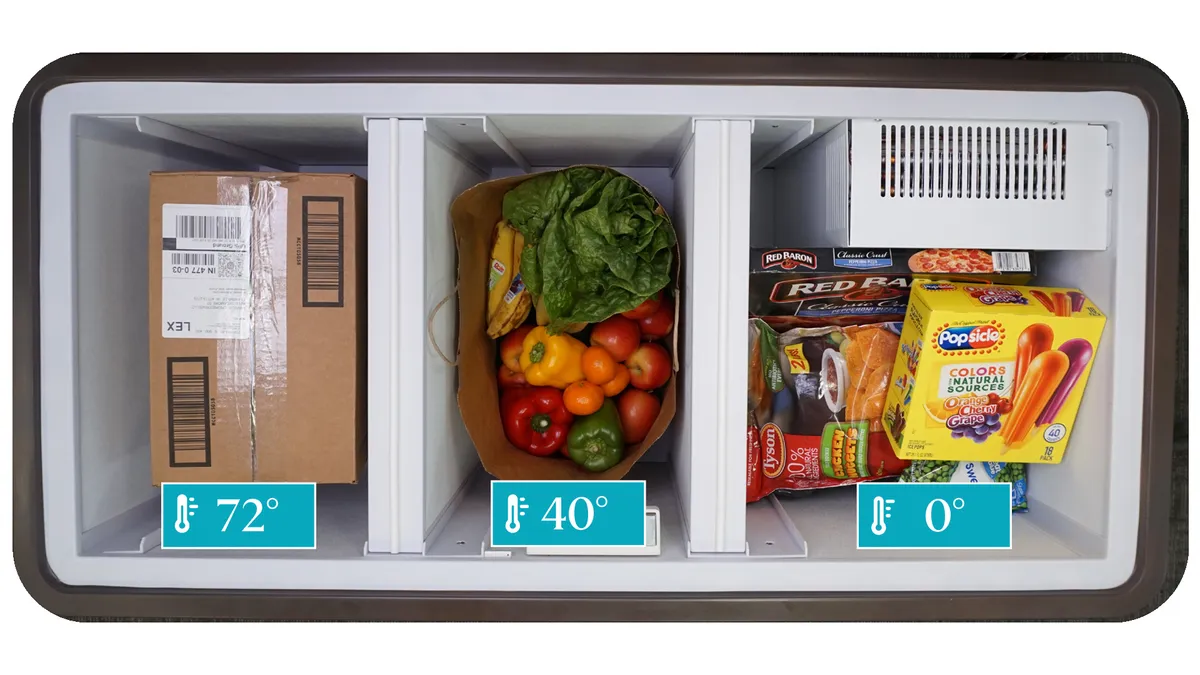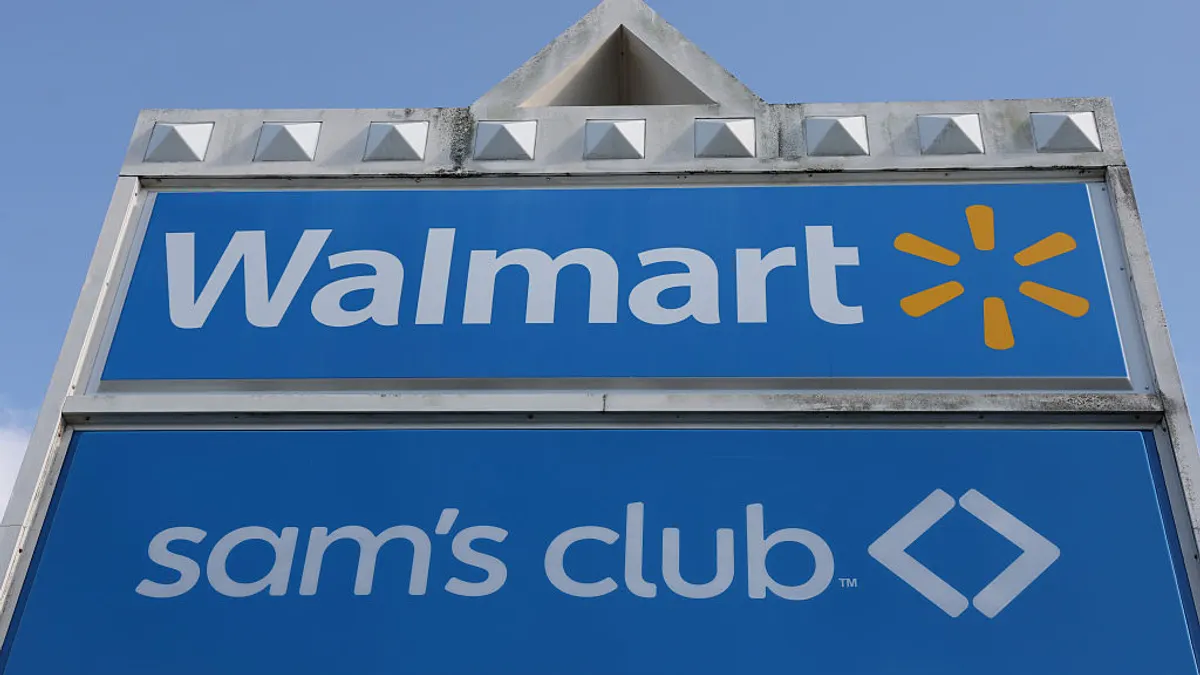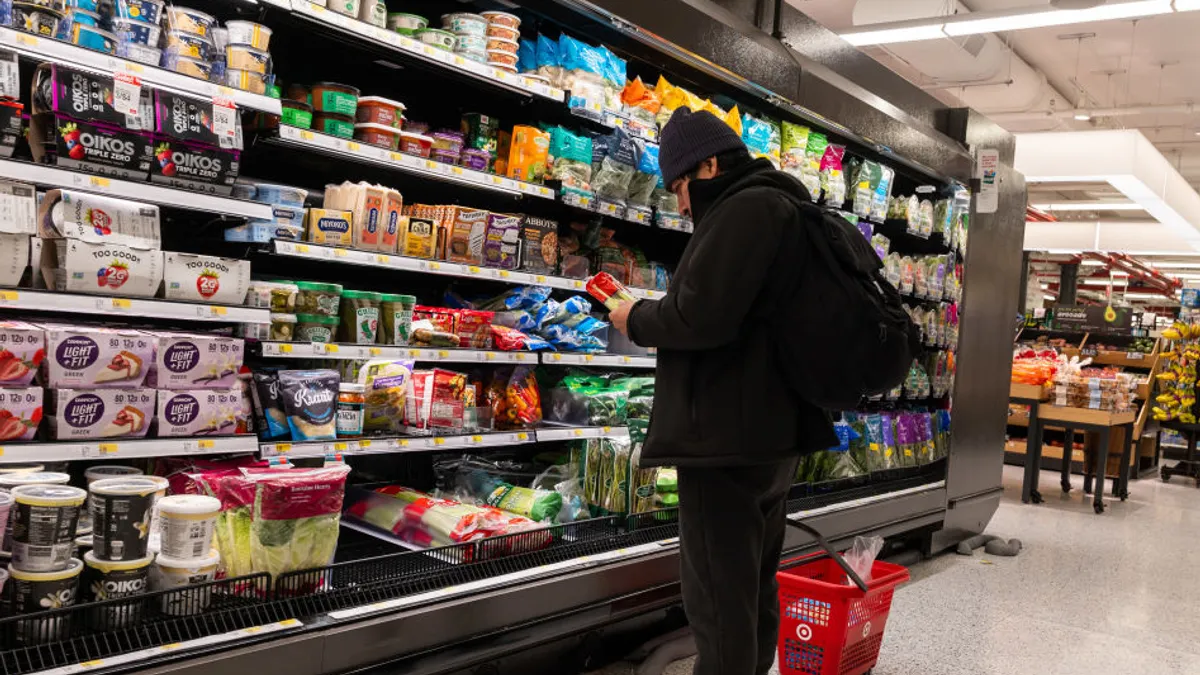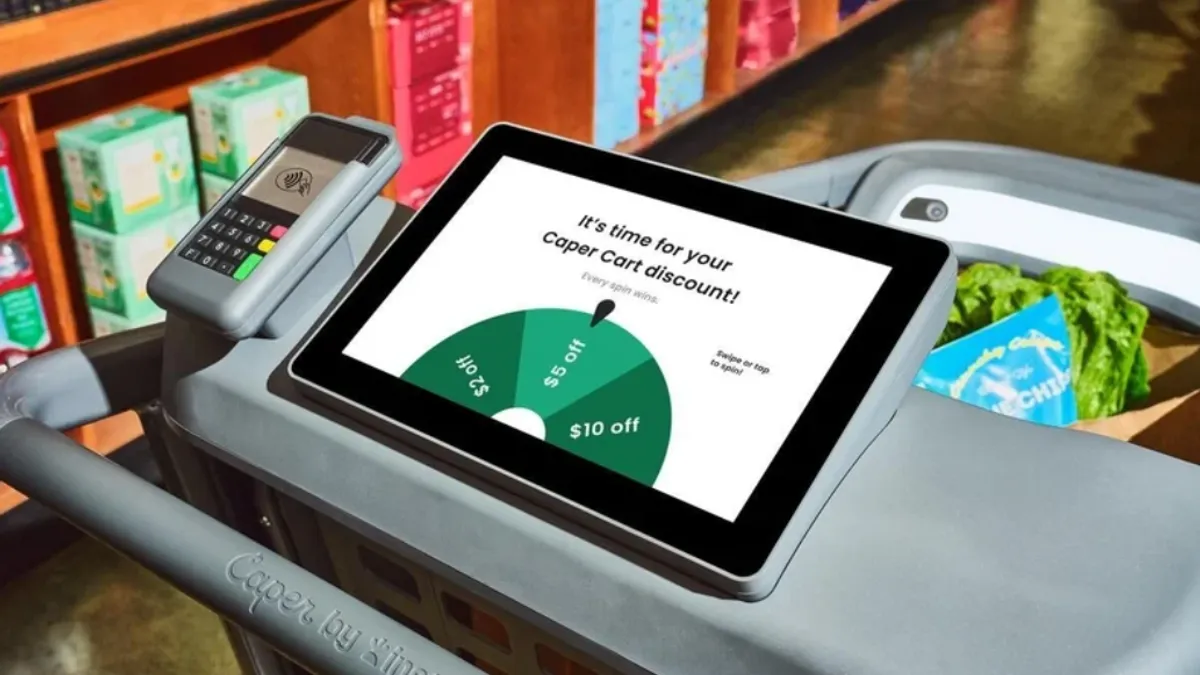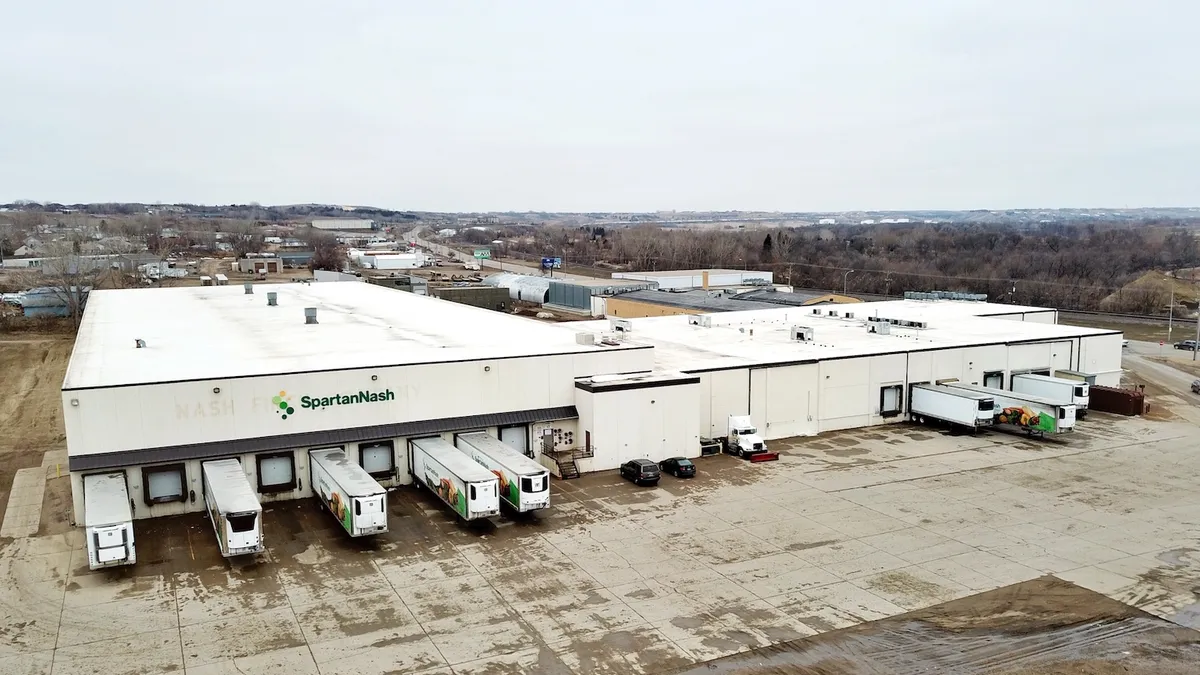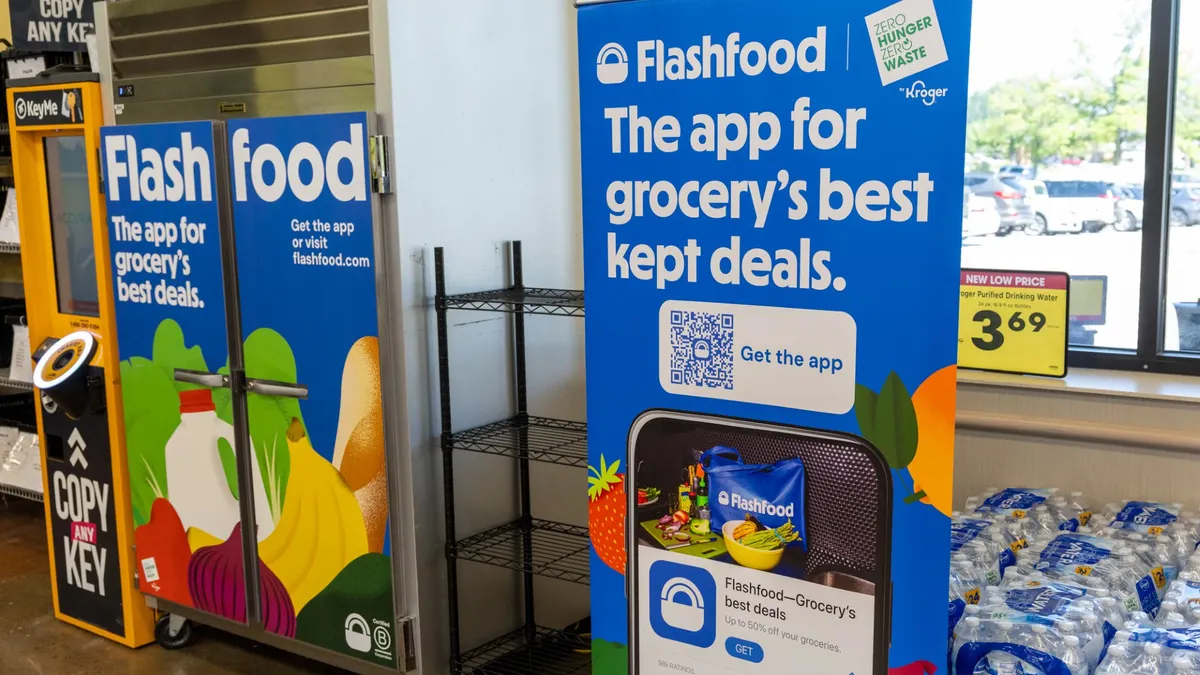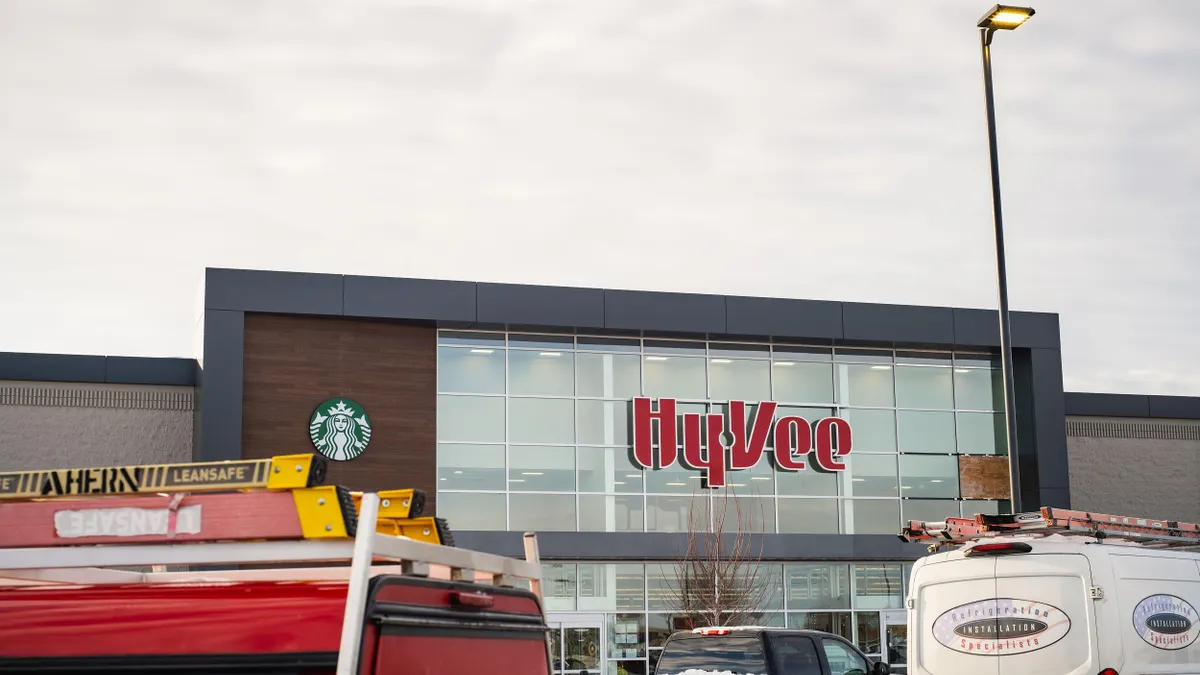When John Simms looks into the future, he sees a world where homes come with a grocery delivery box as a standard feature, just like a mailbox. Simms runs HomeValet, a startup that has designed a secure, temperature-controlled storage unit meant to be placed outside a residence and store perishable goods when no one is home to put them away.
The insulated, internet-linked device, which HomeValet calls a Smart Box, features three adjustable chambers that can store food for hours and communicate with the homeowner, retailer and courier to ensure that when a delivery arrives, it has enough space to store it and is cold or warm enough.
The device also has a camera that records video of delivery personnel to help prevent theft and is capable of accommodating non-food packages alongside groceries. In addition, HomeValet is working on a version of the Smart Box that can be built into a home's exterior and lets the homeowner access it without having to go outside, according to Simms.
In 2020, the company purchased Envolve Engineering, an Indiana-based company founded by four refrigeration experts who used to work for Whirlpool, to turn its vision for an e-commerce appliance into reality.
"In today's world, there are 10 major appliances that are commonly sold by every major appliance brand. The last one to be created was the microwave, and that was almost 50 years ago," said Simms, who established HomeValet with his son in 2017 and serves as CEO. "I think that [grocery delivery boxes] will be designed in new homes in the future and that the cost of the appliance will be included in the mortgage like other appliances are today."
In January, HomeValet announced that Walmart had agreed to test the company's storage unit with 50 households in the retailer's hometown of Bentonville, Arkansas, this spring. In April, the company announced plans to expand internationally and named Henk Niemansverdriet, a former consultant for Walmart and U.K. grocer Asda, to head that effort.
Simms shared his vision for the future of grocery delivery in a recent interview with Grocery Dive.
This interview has been edited for length and clarity.
GROCERY DIVE: It sounds like you believe e-commerce should play a central role in how homes are developed in the future. Can you provide more insight into your thinking?
JOHN SIMMS: If you think about it, e-commerce has been laid on top of an existing system which is really not designed to accommodate it. It wasn't many years ago we were receiving deliveries at home from UPS or the postal service on a periodic basis, but it wasn't that frequent unless you were operating a home-based business, because e-commerce hadn't really kicked in. So there was no accommodation for this. But the world has changed, and it needs to be dealt with.
How do you see your product changing the way grocers fulfill online orders?
SIMMS: Imagine a world where you didn't have to do a two-hour window. A consumer could just say, "I'm placing my order today and I just need it by 5:00 tomorrow." That changes the equation completely. It allows grocers to be picking and packing 24/7. They'll be picking in the middle of the night when there are no customers in the store, and delivery can happen anytime.
Delivery costs pose a key challenge for grocers. Do you see HomeValet as being in a position to change that?
SIMMS: Right now, the cost of delivery is a tremendous burden on grocers, and their margins are tight anyway. If we can change that equation for them, then they might be making money on their delivery because they're cutting their costs. They'll be able to organize routes in an intelligent way, and take 20 or 30 deliveries out for delivery at once and deliver them by six in the morning before the traffic is bad on the roads.
How much will the unit cost?
SIMMS: We see this as a consumer-centric solution for a number of reasons. The cost of the appliance, which we haven't determined yet, will probably be at a number that most retailers, if they were bearing that cost alone, would find difficult to justify. So the consumer will buy it and they will own it.
Does your alliance with Walmart suggest that the retailer will have the exclusive right to use the Smart Box to serve customers?
SIMMS: HomeValet is a retailer- and courier-agnostic product, so no one will have an exclusive. If it's taking up real estate on their front porch or on their driveway on the side of their garage, the consumer is going to want to know that everything they buy online can be delivered to it. And so all of our partners, including Walmart, understand that and believe in that. And that's the way it will operate. The consumer will get the benefit everywhere they shop for all the different kinds of things that they shop for.
The Smart Box is designed to go in front of or next to a single-family residence or maybe a townhouse. Do you plan to adapt it to multifamily homes?
SIMMS: We do have a patent on a cluster design of our Smart Box, and it's possible that that will be utilized sooner in Europe than here in the United States. That's because housing units are often more compact in Europe. Henk [Niemansverdriet] will be helping to introduce us to retailer and courier partners as well as to some potential partners that can produce these boxes closer to where they'll be deployed.
How will consumers who have a Smart Box at their home be able to place orders from multiple retailers without having to worry that there won't be room for the goods or that they will be damaged because the temperature is wrong?
SIMMS: We have a means of sensing where the partitions are and notifying the retailer and the consumer if the mode that is required for a delivery is not configured properly. We can make assumptions about the volume contained in the multiple deliveries, and inform them that it would exceed what can be received in the box and ask if they would like to reschedule it.
Who is responsible for ensuring that a customer's Smart Box is at the right temperature for a particular order?
SIMMS: There's a bit of a ballet that goes on between the computer systems, the contents of the delivery, the retailer and the consumer that causes that temperature to be achieved. So if an order that requires a freezer or refrigerator is placed, the Smart Box is instructed to turn on prior to the delivery so that it's at the required temperature. The temperature is monitored continuously, and it can be monitored by the retailer and by the consumer so that they know that at the time that deliveries are made, they were at the proper temperature.
How has the pandemic impacted your thinking about the appeal HomeValet's product will hold for consumers?
SIMMS: For a lot of people, it has been easier for them to be home to receive things, but the world is going to open back up, and people will be going back to work. And so while people may have more flexible schedules, there will be office time as well. And when that happens there won't be anybody home to retrieve perishables from the front porch shortly after the delivery, and the case for a solution like HomeValet's will even be more compelling.



